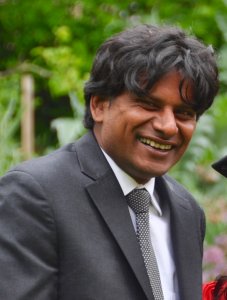Presented By: Center for South Asian Studies
CSAS Lecture Series | The Making of the "Comilla Model": Experiments in Rural Development in East Pakistan, 1959-1971
Tariq Ali, Assistant Professor, Department of History, University of Illinois Urbana-Champaign

This talk will present preliminary research and thoughts from Professor Ali's next project: an examination of the social and political history of a much-celebrated development program conducted in Comilla district, East Pakistan during the 1960s. In 1959, the Pakistani government acceded to the request of the director of the Pakistan Academy of Rural Development to designate the rural areas around Comilla town a “laboratory,” where “experiments” with various ideas of development and modernization would be conducted. In particular the talk will examine how this rural modernization program conceived Islam both as a barrier and a resource to the aspirations of development. Also discussed will be the methodological challenges of working with the development archive, especially, of reading the development archive against the grain to recover subaltern voices.
Tariq Ali is an Assistant Professor of History at the University of Illinois at Urbana Champaign. He teaches courses on South Asian history and on the history of global capital. His first book project, under contract with Princeton University Press and currently awaiting readers reports, is titled: A Local History of Global Capital: Jute and Economic Life in the Bengal Delta, 1850s to the 1950s. The book argues that the cultivation and trade of jute connected the Bengal peasantry to the flows and vicissitudes of global flows of capital and commodities and examines the ways in which these market entanglements transformed peasant households’ material lives, religious and social thought, and political action.
Tariq Ali is an Assistant Professor of History at the University of Illinois at Urbana Champaign. He teaches courses on South Asian history and on the history of global capital. His first book project, under contract with Princeton University Press and currently awaiting readers reports, is titled: A Local History of Global Capital: Jute and Economic Life in the Bengal Delta, 1850s to the 1950s. The book argues that the cultivation and trade of jute connected the Bengal peasantry to the flows and vicissitudes of global flows of capital and commodities and examines the ways in which these market entanglements transformed peasant households’ material lives, religious and social thought, and political action.
Explore Similar Events
-
Loading Similar Events...
